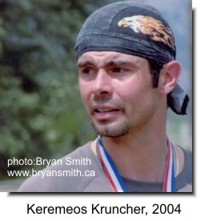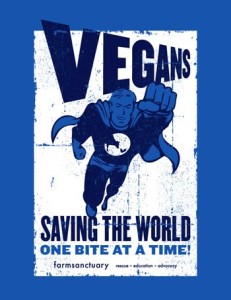Logan’s Run – Logan Beaulieu is a competitive ultra-runner from Edmonton, Alberta
Run because you can By Iain MacIntyre – Run, Logan, run. Run down dusty, ranch roads and up narrow, steep mountain trails. Run through forests and icy streams, and keep going over deadwood and around rocks, climbing above the tree line. Then run farther. Run until you are among the coyotes and eagles and elk so deep in the bush that nobody will find you unless you want them to. Run when your feet hurt and heart pounds, until filling your aching lungs at altitude is like trying to catch your breath underwater. Run because every step is a celebration of your life – your spirit – because every stride takes you farther from that terrible day 17 years ago. Run because you can. Run, Logan Beaulieu, because running saved you and others need to know. “My grandmother told me: Be careful how you live because you may be the only bible someone ever reads”, Moe Beaulieu, Logan’s dad, says. “In some ways, Logan says he’s better off because of the accident – in the way he looks at life”. The accident is later. First comes Logan. At 33, he is among Canada’s premier ultramarathoners, which is difficult to quantify because the sport is loosely organized and even among extreme athletes, ultrarunners are considered chief tenants of the lunatic fringe. Truly and figuratively, they are out there. They race on wilderness courses up to 100 miles or more in length, often climbing 8,000 or 10,000 feet during a race. They carry their own water and energy food and must be somewhat self-sufficient because if they get into trouble, aid stations may be 10 miles apart. There is no prize money, no fame, no X-Games. Rollerblading on a half-pipe, doing tricks on a BMX bike? Please. What’s extreme about that? “Training is not always that fun, but the events are like a rebirth”, Moe, 60, explains. “It’s like you’re a child again, running in the woods. I don’t tell a lot of people about it because they figure: this guy’s lying or he’s insane. Then after they get to know me, they think: he’s not lying, he’s just insane. Why would you run 100 miles? Because you can. What else are you going to say? We were made to move. It’s primal”. So is surviving, and Logan Beaulieu knows about that, too. Born in Williams Lake and raised in Prince George and Penticton, Beaulieu’s life changed in a millisecond during the middle of the night when he was 16 years old. He was the passenger in a buddy’s car that was T-boned at an intersection in Penticton. Logan’s friend, Shaun, died instantly at impact on the driver’s side. “They thought I was dead, too”, Logan says. “One of the ambulance guys noticed I was still breathing”. When paramedics arrived, Logan’s leg was sticking through the passenger door. The door was not open. His leg punctured it. Imagine the force required to do that. No alcohol was involved in the accident. No charges were laid. Logan didn’t quite die that warm night in 1988, but nobody knew if he’d survive the next one and the one after that. He was airlifted to St. Paul’s Hospital in Vancouver and spent the next 16 days in a coma. Moe, separated from Logan’s mum, June, took leave from his radio advertising job in Victoria to stay by Logan’s bedside. Raised Catholic, Moe says he is more spiritual than religious. But he figures other forces, besides Logan’s will, were at work. “My grandmother told me when I was a kid – my dad left when I was 15 so I spent a lot of time with her – she said she would be my guardian angel”, Moe says. “She said if I or anyone I knew was ever in trouble, call on her”. He also called on a stranger, an anonymous Italian woman who was visiting her unconscious father in St. Paul’s. Moe asked her name and she told him, then added in her limited English, that it meant small miracle. “So I said: Would you mind putting your hand on my son because we need a small miracle?” he recalls. “She put her hand on his forehead and over his face. I’d talk to Logan and sing to him songs my grandmother taught me. One night I said: OK, son, it’s 10 o’clock, so I’m going to leave now and see your cousin. And he made a kissing sound. They said it was just a reaction to pain and the drugs he was on. But I would not believe that he didn’t know I was there. His left side was paralysed, but he could move his right arm while unconscious. One time he had his hand on my face and started pulling my hair. I said: Son, you’re hurting your dad. So he patted my face and stroked my beard and relaxed. And the nurses said, Look at that”. Seventeen days after the accident, Logan Beaulieu woke up. Look at that. “His mum was standing there facing him when I walked in the room”, Moe says. “He was really fuzzy, but he said: Mum, here’s my big dad. And I started crying. At least I knew he could talk”. Moe didn’t allow himself the selfishness of crying in Logan’s presence until then because he didn’t want his sleeping son to know of his anguish and fear. Initially, crying was all anyone knew Logan could do. Apart from any neurological damage he may have suffered, he remained paralysed on one side. “Doctors told me I had a 10-per-cent chance to walk again”, Logan says, before adding: “Doctors always give you the worst-case scenario”. Slowly, Logan began to regain feeling in his left hand. His father had him squeeze a towel to start rebuilding strength. Logan could barely move. At one point, he somehow made it to the end of his bed and tried standing. “Of course, I fell on the floor”, he says. A wheelchair was brought in and Moe would bustle Logan into it, then order his son to use his good hand to wheel himself a few metres. “That is where my recovery began”, Logan says. “That’s when I decided I was going to walk again, I was going to beat this”. Moe says a therapist told him that, if all went well, Logan might be able to get out of the wheelchair in six months. “I said: Son, if you stay in that wheelchair six months, you might be there the rest of your life”, he recalls. “I said: You’ve got to get moving. He was out of the wheelchair in three weeks”. But it would take much longer for Logan to run. Transferred to the GF Strong Rehabilitation Centre on Laurel Street, Logan took daily walks around a grassy clearing. Moe half-carried him at the beginning. Later, Logan would merely lean on his dad’s shoulder. Soon he was holding on only to Moe’s arm, then eventually began hobbling around the park solo, using a cane and mostly dragging his left leg along against its will. “I’d walk with a very bad limp, walk slowly”, Logan says. “It felt like a football field I was walking around, a really big field. But I’ve seen it since then and it was only a little field. I had to use a lot of tough love”, Moe says. “He knew I loved him, but I had to be almost like a drill sergeant. It’s human nature to take the easy way out”. Most times, Moe’s love for his son wasn’t tough at all. Logan’s sister, Roxanna – another brother, Jarrett, works as a master chef in the United Arab Emirates – says her dad abandoned a planned move to Colorado to stay with Logan. “Logan needed him”, she explains. After several months of rehab and a brief return to Penticton, where his mom lived, Logan moved to Victoria to live with his dad. There was too much pain in Penticton. Logan worked with physical therapists and occupational therapists, strengthening his body and mind. Moe rented an apartment for Logan, across the street from his own home, so his son would have a sense of independence and learn to be self-sufficient. Then Logan started to run. He had been an active kid, but was no jock. In Grade 5, Logan had finished fifth at the B.C. cross-country championships in Richmond. Jarrett was a runner, too. All the Beaulieus were. “Dad had us going out on three-mile runs, three days a week,” Roxanna says. “My dad’s a bit eccentric”. “If you’re physically fit and active, your mind kind of follows along”, Moe says. Running became Logan’s therapy. Running rejuvenated his body and cleared his mind. “Apart from the endorphins rush, running is great therapy in itself”, he says. “It’s great for the mind, especially when I was going through school after the accident and found it difficult”. More than anything, Logan says, running restored his self-esteem. “It took him outside himself”, Moe says. Moe was a runner. Is a runner. He has completed 94 marathons and ultras. He remembers running as a teenager most of the way in a “walkathon” near Camrose, Alta. Decades later, he took up running more seriously after racing his children to the end of the street. “I was puffing to keep up”, Moe says. “I never had a gut. I must have had a big butt or a big head”. Moe entered his first ultramarathon at age 42. Logan did his first at 21. Five years years after he should have died in his friend’s car, five years after doctors told him he had a one-in-10 chance to walk again, Logan Beaulieu ran 401 laps around a track – logging 100.25 miles – during the “Sri Chinmoy 24-hour race” in Victoria. “I ran 401 laps in case there was a miscount”, Logan says. “I wanted to make sure I did 100 miles. I love running. It was something I could do, something I could be good at”. In 12 years, Logan has run 20 ultras and three marathons. He ran six ultras last year and plans to do nine this season. Logan moved to Edmonton two years ago because he wanted a change, something Moe, who says he had 13 jobs in 30 years, can relate to. Logan says he’d like to return to B.C. with his girlfriend. Roxanna remains in Victoria. June was killed by cancer about five years ago. Moe says Logan is the living bible his grandmother talked about. Logan has lived and worked in Northern Ireland, Australia and Fiji, befriending people everywhere. He is pondering a couple of job offers in Edmonton, and is leaning towards accepting one from Wal-Mart. “He’s not 100 per cent, but he’s 95 per cent”, Moe says. “And he uses that 95 to such an extent that it’s like 150 per cent compared to other people”. Logan admits his memory can fail him. He occasionally pauses in mid-sentence. But no one who talks with him would suspect the horror he has overcome. He says most of his friends don’t know about the accident. “I used to kind of hide from it”, he says. “I suppose I still do. It was when I was 16; so much has happened in my recovery since then. It’s almost like it was a lifetime ago. I hate to say it, but the memory of it has faded. I just had to get on with my life. I was young enough. So much has happened to me, I sort of forget how much I went through. You get caught up with other things”. Like running. Like living. “It kept me balanced”, he says. “Without a positive influence, without a positive goal, I easily could have been swayed and grabbed on to something destructive. I could have gotten very depressed”. “A lot of the kids in the same predicament as Logan – maybe not even as bad – are on drugs and still in wheelchairs”, Moe says. “I just would not believe that he wouldn’t recover”. Logan says he hopes to attract sponsors who will help him become a role model for other accident victims, proof that odds are beaten, that you can run gloriously even after being told you might never walk or – as his father says – that you can be reborn far, far down the trail. “I want to make people feel better about themselves”, Logan says. Not long after Logan woke from his coma, Moe absent-mindedly began singing one of his grandmother’s favourite hymns, a song Logan had never heard until he slept for those sixteen nights in St. Paul’s Hospital. “He filled in the last line of the song”, Moe says. “You can’t achieve anything without believing. I’m not sure I could have done what he has. I don’t know if I could be as brave. It amazes me. It’s overwhelming. Almost unbelievable”.
|
♦2005 CanWest Interactive Inc. All Rights Reserved
♦2005 Copyright 2009 All Rights Reserved












